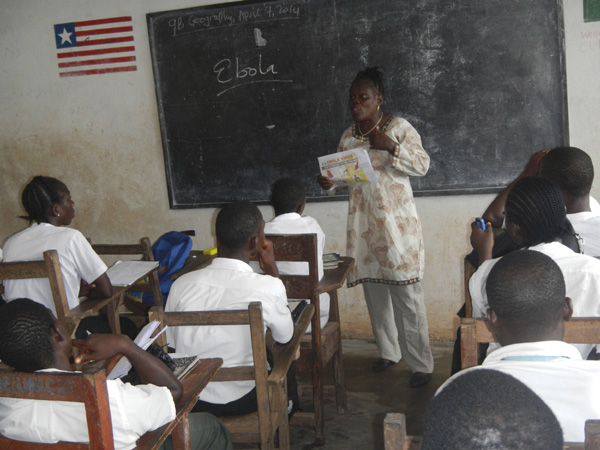
United States Centre for Disease Control and Prevention (CDC) says there is need for health workers in Africa to unite and volunteer to go to the Ebola affected areas to help fight the deadly virus.
By FELUNA NLEYA
CDC director Tom Friedan told journalists through a telephonic conference that he would travel to Addis Ababa and engage the African Union in a bid to have health workers from the region go and help in the fight against Ebola in the affected West African countries.
“We are trying to mobilise more health workers,” Frieden said.
“In fact, I am departing to go to the African Union in Addis Abba and negotiate such participation. They are very ready and willing, but obviously, we need to be protected during the course of clinical care so that we do not acquire any more Ebola in healthcare workers.”
He noted that from his visit to the affected countries specialist doctors were available, but what was in shortage was basic health care.
“We do not need large numbers of specialists or expatriate doctor specialists, what we need are those who can provide a basic level of care, meticulous attention to fluid and electrolyte status, and these other simple medications,” Freiden said.
“Of course, everyone would like to do more advanced care and that carries with it other risks, needle stick injuries and others, but I think we are confident that if we put these treatment centres up, the health workers will come, but of course they have to be adequately trained and supervised and equipped with personal protective equipment.”
- New perspectives: Role of private sector in resource mobilisation
- Sungura in Macheso’s safe hands
- New perspectives: Role of private sector in resource mobilisation
- ‘We are developing a regional aviation hub’
Keep Reading
Speaking through the same conference, Special Assistant to President Barack Obama and Senior Director for Development and Democracy, Gayle Smith said although capability on the ground was there, there was need for more health workers.
“There is both a capability and willingness. We do need more healthcare workers in order to enable that and we have had some recent successes in reaching out to many of our partners,” Smith said.
“We are working, including with other countries, to make sure that we can, hopefully very soon, provide additional assistance that will allow for healthcare workers to make sure that they get the care they need.”
Smith said the US was working with other countries to contain the situation.
“There have been people affected who have been evacuated to make sure those capabilities again are available, but I want to stress, from our point of view, the important piece is to think of health workers in this case internationally, both national and those who may come from outside,” Smith said.
Frieden said the deadly Ebola disease was spiralling out of control and there was need for countries not affected to scale up their rapid response teams.
Ebola has claimed over 1 900 lives in West Africa, mostly in Guinea, Liberia, Nigeria and Sierra Leone.
Southern African countries have also increased their surveillance programmes following reports that the Democratic Republic of Congo had recorded Ebola cases.
The Ebola virus, which has no cure yet, is spread between humans through direct contact with an infected person’s bodily fluids.










